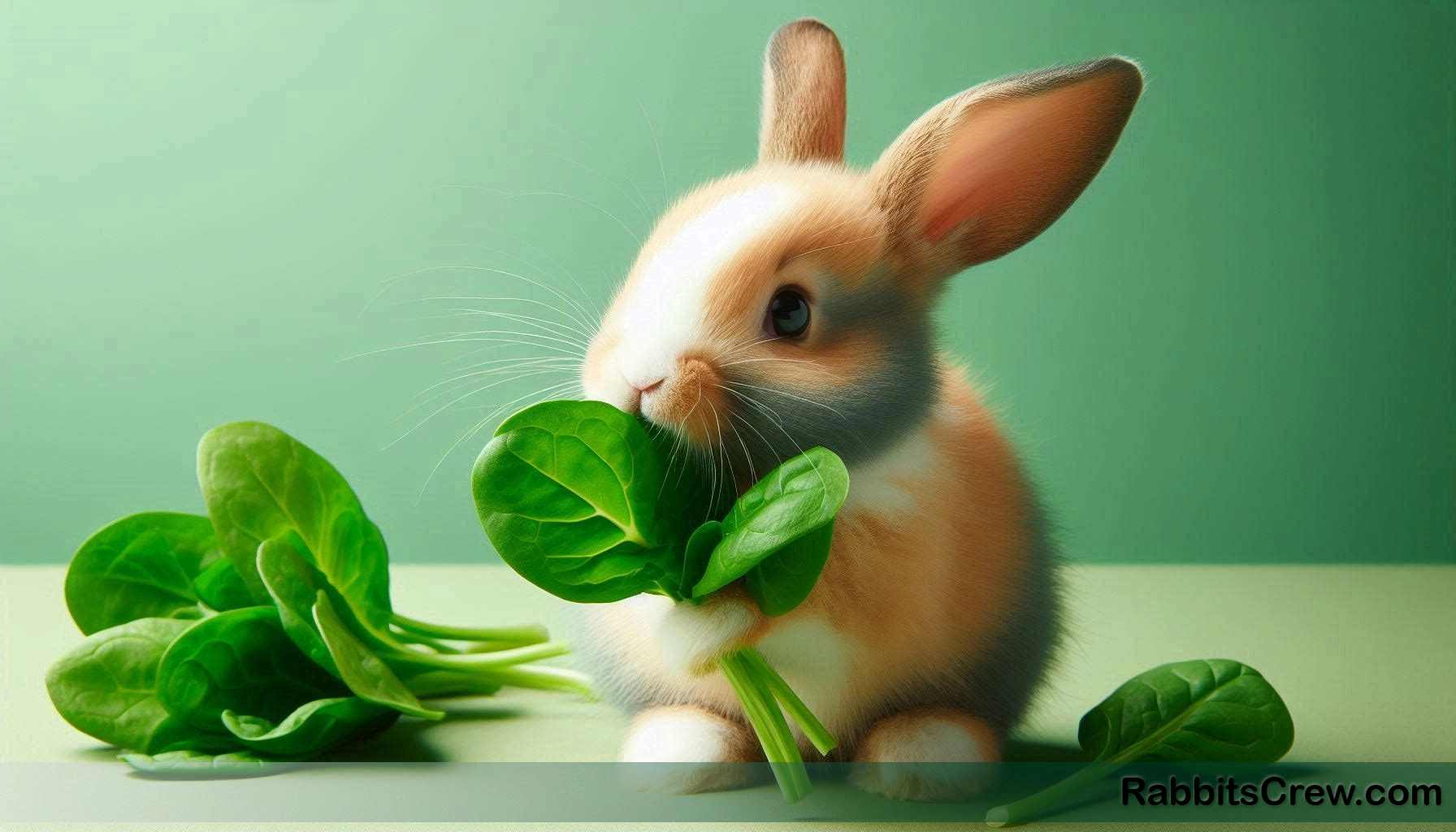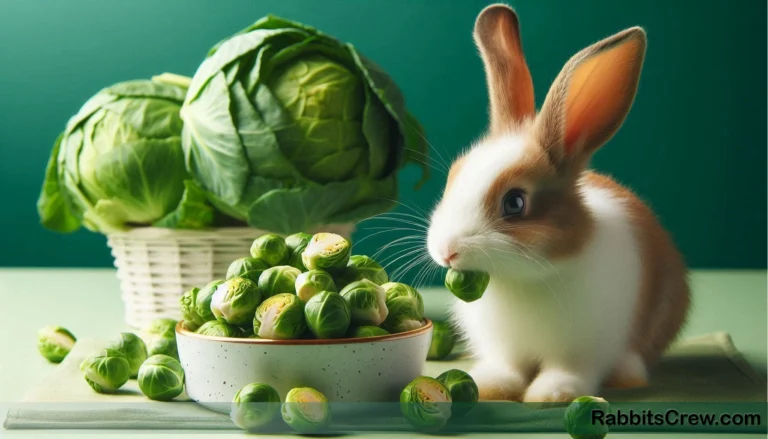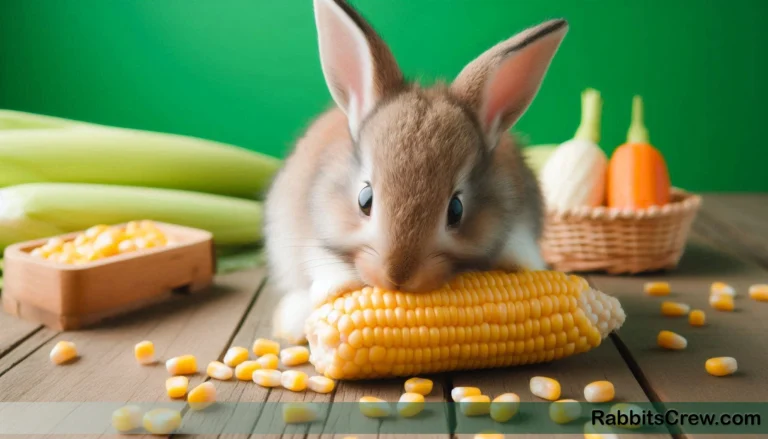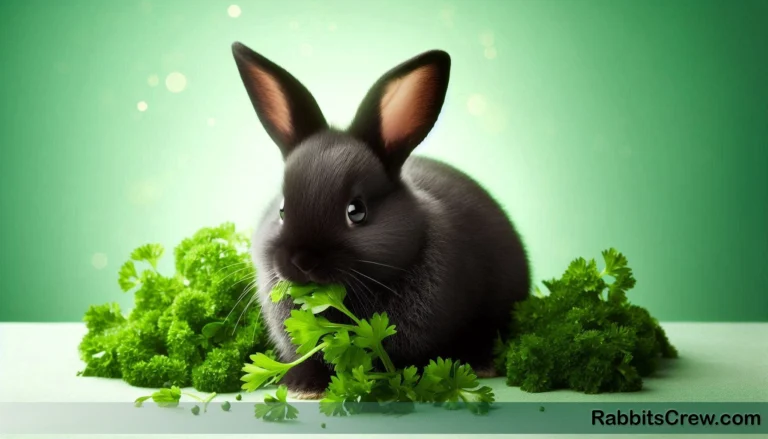Can Rabbits Eat Spinach, Stems or Stalks? [Answer Covered]
Rabbits can eat spinach, including stems and stalks, but only occasionally. High oxalic acid content can be harmful in large amounts.
Spinach is a nutrient-rich leafy green that can be a healthy addition to a rabbit’s diet when fed in moderation. This article explores the benefits and risks of feeding spinach to rabbits, providing evidence-based information for rabbit keepers. We’ll discuss proper serving sizes, introduction methods, and potential health issues associated with overfeeding. By the end, you’ll have a clear understanding of how to safely incorporate spinach into your rabbit’s diet.
Table 1: Spinach Components and Rabbit Safety
| Component | Safe for Rabbits? | Notes |
|---|---|---|
| Leaves | Yes, in moderation | Rich in vitamins and minerals; high in oxalates, so feed sparingly |
| Stems | Yes, in moderation | High in fiber; introduce gradually to avoid digestive issues |
| Stalks | Yes, in moderation | Similar to stems; provide fiber but should be fed in moderation |
| Seeds | No | Not safe for rabbits; can cause digestive problems and contain harmful compounds |
| Roots | No | Not recommended; can be hard to digest and may contain substances harmful to rabbits |
| Flowers | Yes, in small amounts | Less commonly fed, but generally safe in small quantities |
| Baby Spinach Leaves | Yes, in moderation | Similar to mature leaves but more tender; still high in oxalates |
| Frozen Spinach | No | Freezing can alter texture and nutrient content; fresh is always preferable |
| Cooked Spinach | No | Cooking changes nutrient composition and can make it less digestible for rabbits |
How much spinach should rabbits eat?
Adult rabbits can safely consume about 1 cup of mixed vegetables per 2 pounds of body weight daily. Spinach should make up no more than 10-15% of this vegetable portion.
Table 2: A guideline for spinach consumption
| Frequency | Amount |
|---|---|
| Daily | Not recommended |
| Weekly | 1-2 times per week |
| Monthly | 4-8 times per month |
It’s best to rotate spinach with other leafy greens throughout the week to ensure a balanced diet.
Can Rabbits Eat Spinach?
Yes, rabbits can eat spinach. It’s a nutritious vegetable that can be part of a balanced diet for adult rabbits. However, it’s crucial to feed spinach in moderation due to its high oxalate content.
Table 3: Nutritional Content of Spinach per 100g
| Nutrient | Amount |
|---|---|
| Calories | 23 kcal |
| Protein | 2.9 g |
| Fat | 0.4 g |
| Carbohydrates | 3.6 g |
| Fiber | 2.2 g |
| Vitamin A | 9377 IU |
| Vitamin C | 28.1 mg |
| Vitamin K | 482.9 µg |
| Folate | 194 µg |
| Iron | 2.7 mg |
| Calcium | 99 mg |
| Magnesium | 79 mg |
Health benefits of spinach for rabbits:
– High in vitamin A, supporting eye health and immune function
– Contains vitamin C, an antioxidant that aids in tissue repair
– Provides vitamin K, essential for blood clotting
– Rich in iron, supporting red blood cell production
– Good source of fiber, promoting digestive health
Risks associated with feeding spinach to rabbits:
– High oxalate content, which can interfere with calcium absorption
– Potential for digestive upset if introduced too quickly or in large amounts
– Risk of bladder sludge or urinary stones due to high calcium content
Can rabbits eat spinach stems and stalks?
Yes, rabbits can eat spinach stems and stalks. In fact, the stems are often lower in oxalates compared to the leaves, making them a slightly safer option. However, it’s still important to introduce them gradually and in moderation.
What’s the best way to introduce spinach to rabbits?
1. Start with small amounts (1-2 leaves) once or twice a week
2. Observe your rabbit for any signs of digestive upset
3. Gradually increase the amount if no adverse reactions occur
4. Always wash the spinach thoroughly to remove any pesticides or contaminants
5. Introduce spinach alongside other familiar vegetables
What other vegetables should rabbits eat with spinach?
To provide a balanced diet, offer a variety of vegetables alongside spinach:
– Romaine lettuce
– Carrot tops
– Cilantro
– Parsley
– Bok choy
– Watercress
– Bell peppers
Spinach contributes to a rabbit’s health in several ways:
1. Supports immune function through vitamin C content
2. Promotes healthy vision with vitamin A
3. Aids in maintaining strong bones due to vitamin K
4. Supports digestive health with its fiber content
5. Helps maintain hydration due to high water content
Are there risks in feeding spinach to rabbits?
While spinach offers nutritional benefits, there are potential risks to consider:
1. Oxalate accumulation, leading to reduced calcium absorption
2. Increased risk of bladder sludge or urinary stones
3. Digestive upset if introduced too quickly or in large amounts
When should spinach be included in a rabbit’s diet?
Spinach can be introduced to adult rabbits (over 6 months old) as part of their varied vegetable intake. It’s best to rotate spinach with other leafy greens to ensure a diverse nutrient profile and minimize potential risks associated with overfeeding any single vegetable.
Table 4: Potential Health Issues from Overfeeding Spinach
| Health Issue | Cause | Symptoms |
|---|---|---|
| Bladder Sludge | High calcium content | Difficulty urinating, discomfort |
| Urinary Stones | Oxalate accumulation | Blood in urine, pain, reduced appetite |
| Digestive Upset | Sudden introduction or overfeeding | Diarrhea, gas, bloating |
| Calcium Deficiency | Oxalate interference with absorption | Weak bones, dental issues |
Final Verdict
In conclusion, spinach can be a healthy addition to a rabbit’s diet when fed in moderation and as part of a varied vegetable intake. Always introduce new foods gradually, monitor your rabbit’s response, and consult with a veterinarian if you have any concerns about your rabbit’s diet or health.







